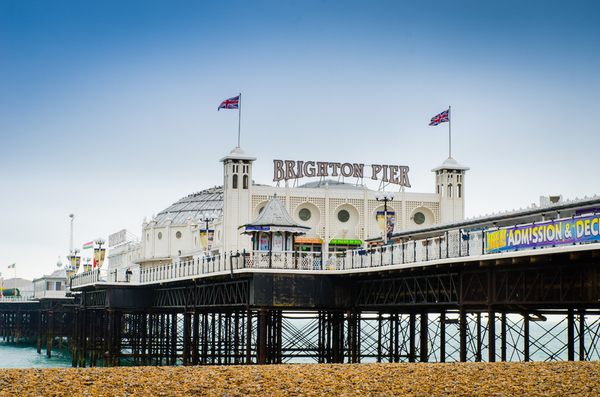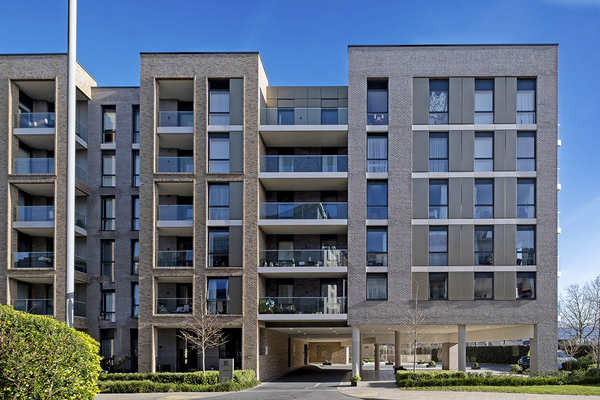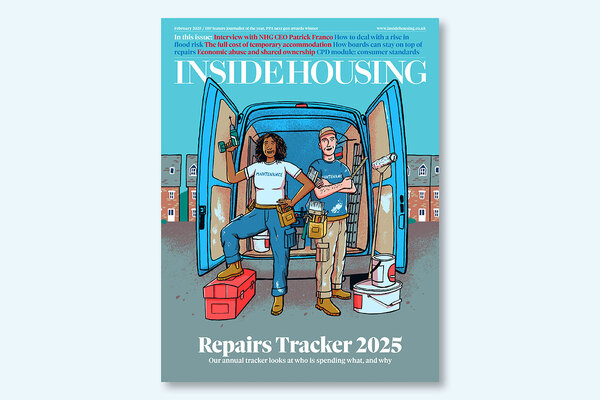'New era' for housing associations under deal
Sweeping changes included in an historic proposed deal over the extension of the Right to Buy to housing associations set the stage for “a new era” for the sector.
The National Housing Federation’s (NHF) proposal to government to escape legislation seeks to commit government to ”implement[ing] deregulatory measures”, including potentially rewriting rules which see councils nominate the most needy tenants to association homes.
An exclusive Inside Housing poll revealed 37 housing associations controlling 1.02m homes had already agreed to the ‘voluntary’ deal on Wednesday, with the majority of the sector expected to sign up by today’s 5pm deadline.
Four landlords with 46,700 homes – Wythenshawe, Red Kite, Hastoe and an anonymous national organisation – said they were voting no, and eight were still waiting on board approval.
‘Chapter three’ of the proposal, which was announced by the NHF and communities secretary Greg Clark last week, would require the government to examine changing nominations from councils to housing association stock, which could give associations “greater control over who they house”.
It also discusses the potential to allow housing associations to convert properties from sub-market rent to “other forms of tenure” and amending Homes and Communities Agency (HCA) requirements to get consent before they sell existing stock.
Mick Sweeney, chief executive of One Housing Group, said if enacted, the proposals would “reset the relationship” between the HCA and social landlords, which had previously been “constrained by, quite frankly, old-fashioned regulatory requirements”.
The government is still to formally consider the offer, but the NHF proposal was written after exhaustive talks with ministers. It is understood many large landlords had agreed to support the proposal before it was announced in Birmingham.
John Giesen, chair of Placeshapers, which represents 100 housing associations, said: “The government does recognise the old-style regulation needs to change, as we enter a new era. The old rules, for example about disposals, need to reflect that.”
Rod Cahill, chief executive of Catalyst, added that the reshaping of the relationship between landlords and the government was an important part of the deal, given how “little subsidy” now funded social housing.
But Philip Glanville, cabinet member for housing at Labour-led Hackney Council, said the proposal’s suggestions about regulatory relaxations, particularly those relating to nominations agreements, were “as bad as the wider deal itself”. “You start questioning what housing associations are for if they’re inviting all these changes,” he added.
Further NHF documents say the regulator would have a role in policing the deal, with the potential for ministers to direct the HCA to introduce a new standard including measures on homeownership.
A Department for Communities and Local Government spokesperson said it would consider the proposals.
The big vote: exclusive poll
Voting yes:
1.02m homes, owned by 37 landlords
Voting no:
46,700 homes, owned by four landlords
Still to decide:
159,850 homes, owned by eight landlords
Source: Inside Housing poll of 49 landlords on Wednesday. The NHF is looking for a majority in terms of stock held.
Right to Buy deal: the unanswered questions
The ONS
The National Housing Federation (NHF) has said that legislation would likely trigger a reclassification of housing associations as public bodies. But the Office for National Statistics (ONS) is less sure, and it’s quite possible a reclassification could happen even under the voluntary deal, in what is ultimately a holistic assessment of government control. How government would respond to a reclassification also remains ambiguous – nationalising housing associations would be a complex and unprecedented step, not an automatic result of reclassification.
The HCA
What is the regulator’s role going to be if the voluntary deal goes ahead?
The NHF has said the government could direct the Homes and Communities Agency (HCA) to introduce a new standard with measures on homeownership, and whether housing associations are implementing “a genuine overall presumption to sell”.
But this would represent a sweeping extension of the regulator’s power to police consumer affairs, which a source familiar with its operation has suggested would need legislation to introduce.
A new future?
A package of changes in the proposal, which would change nominations agreements, relax stock disposal rules and allow all tenants to buy a share of their property, could radically alter the nature of the housing association sector. However, the NHF has said there is not yet any specific commitment from the government to introduce the proposals and had admitted much of the detail is still to be worked up. Boards will be keen to know what these changes will mean – and how many of them the government is actually willing to introduce.
Opposition
The HCA’s role ties into the next big question. According to Inside Housing’s exclusive poll, eight landlords are still consulting boards, while at least four will vote no. Many more could emerge before Friday. If one of these landlords digs its heels in and refuses, what happens? Will the regulator force its board to sell homes to tenants?










